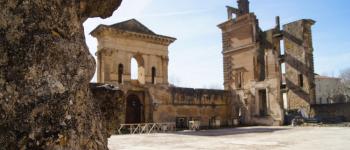
Manon des sources is a Franco-Swiss Italian dramatic film directed by Claude Berri, released in 1986.
Adapted from the second eponymous volume of the romantic diptych "L'Eau des collines" by Marcel Pagnol, the film is the sequel to « Jean de Florette » released the same year.
The story...
Ugolin Soubeyran thrives on its locality perched on a hillside, called "the Romarins".
He started growing flowers, mainly carnations, which he sells at a good price.
This property was acquired thanks to shenanigans made by himself and his uncle César (known as le Papet), years ago, against Jean de Florette.
This man owned the house before them, by inheritance. Manon, the daughter of this unloved man, was ten years old when her family moved in.
She has since grown up. As the years went by, she became an orphan with no father. She now lives like a hermit in the surrounding hills.
She avoids contact with the villagers as much as she can, which is easy because she has become a shepherdess.
Le Papet, getting old, summoned her nephew to marry and have children because he is the last of the Soubeyran.
Le Papet wants him to pass on all the gold of the Soubeyran clan to his children and not to reproduce what the elders did, too proud.
Indeed, the multiple marriages between cousins have resulted in two madwomen and three suicides.
The nephew soon falls in passionate love with Manon, without him recognizing her at first for who she is.
He saw her one morning bathing naked in a waterfall and immediately fell under her spell.
The actors
Yves Montand: César Soubeyran, known as "Le Papet".
Daniel Auteuil: Ugolin Soubeyran
Emmanuelle Béart: Manon Cadoret
Hippolyte Girardot : Bernard Olivier, the teacher
Élisabeth Depardieu: Aimée Cadoret, Jean's widow and mother of Manon
Margarita Lozano: Baptistine, the witch who lives with Manon4
Yvonne Gamy : Delphine, the old blind woman who learns the truth at Le Papet
Ticky Holgado: the "Rural Engineer
Shooting locations
The film was shot in the Vaucluse at Mirabeau for the scenes in the café, the fountain and the school and at Vaugines for those in the church and the cemetery.
http://luberon.fr/luberon/



